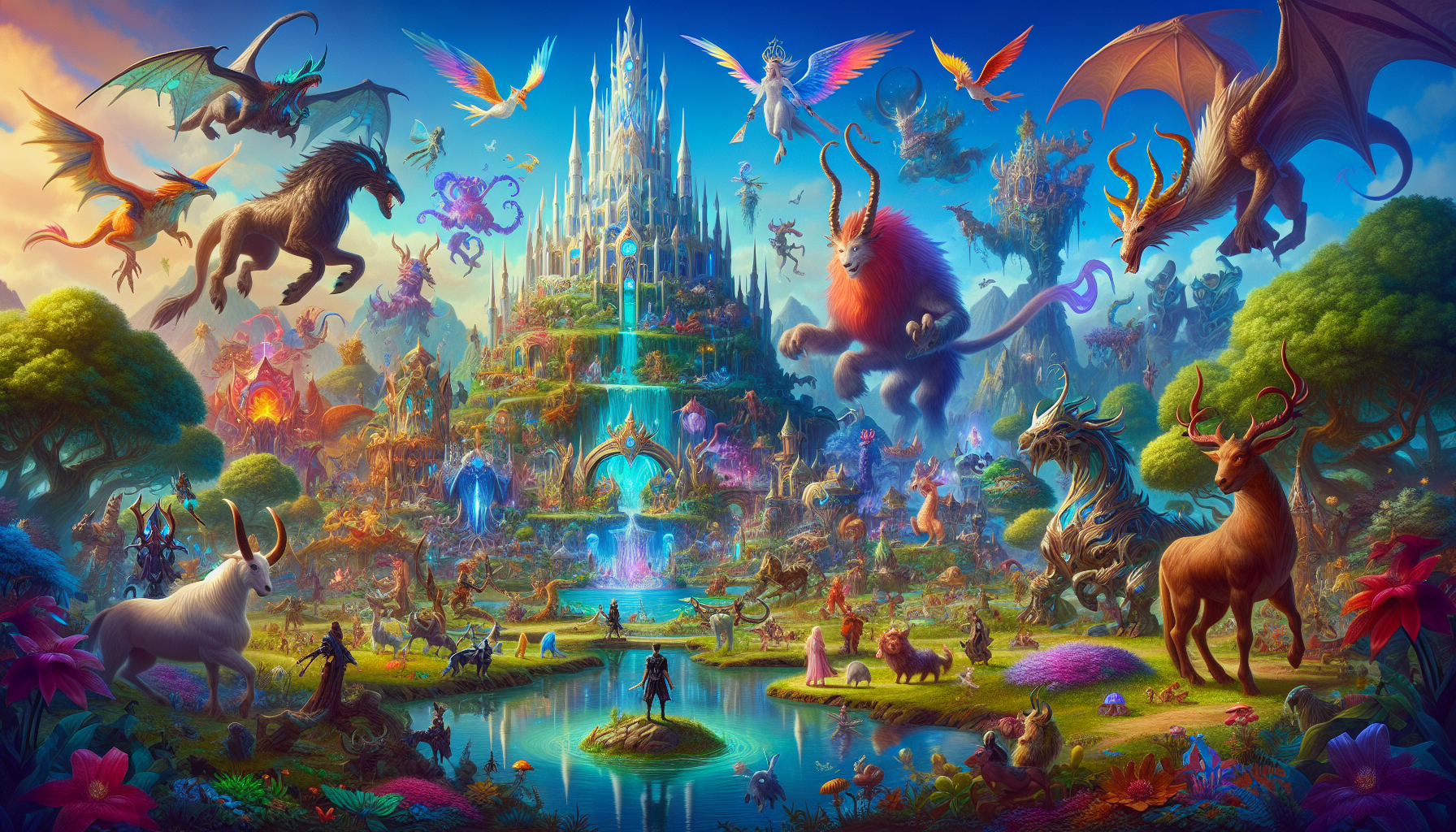Massively Multiplayer Online Role-Playing Games (MMORPGs) have been a significant part of the gaming landscape for several decades. Since their inception, they have undergone a remarkable transformation, evolving in ways that have reshaped not only the games themselves but also the broader culture they inhabit. This journey of evolution is marked by distinct trends and innovations that have continually redefined the genre.
The Genesis of MMORPGs
The roots of MMORPGs trace back to the early days of online gaming, with text-based adventures like MUDs (Multi-User Dungeons) in the late 1970s and early 1980s. These games laid the groundwork for virtual worlds where players could interact in shared spaces, long before the graphical capabilities of modern gaming were a reality. The focus was on storytelling and community, elements that continue to be integral to the genre.
The Dawn of Commercial MMORPGs
The late 1990s marked a significant milestone with the release of "Ultima Online" and "EverQuest," which brought graphical interfaces and broader appeal to MMORPGs. These games established key mechanics that became staples of the genre, such as persistent worlds, complex social dynamics, and player-driven economies. The transition to 3D graphics and the implementation of subscription models were pivotal, setting benchmarks that future games would emulate.
The Golden Age and Mainstream Success
In the early 2000s, the genre exploded into mainstream consciousness with the release of "World of Warcraft" (WoW). WoW's unprecedented success was due, in part, to its polished gameplay, vast world, and accessibility to a wider audience. This period is often referred to as the golden age of MMORPGs, as it cemented the genre's place in popular culture. WoW's influence extended beyond gaming, affecting music, film, and even societal vocabularies.
Technological Advancements and Gameplay Innovations
As technology advanced, so too did the capabilities of MMORPGs. Improved graphics, more robust servers, and sophisticated AI created richer, more immersive experiences. Games like "Guild Wars 2" introduced dynamic events that responded to player actions, while "The Elder Scrolls Online" sought to blend MMORPG mechanics with the deep narratives characteristic of single-player RPGs. The integration of voice communication, expansive modding communities, and cross-platform play further enhanced the player experience.
The Rise of Free-to-Play and Microtransactions
In the 2010s, there was a noticeable shift towards free-to-play models, with games such as "RuneScape" and "Star Wars: The Old Republic" leading the charge. This change democratized access but also brought challenges like the balancing of microtransactions and the integrity of gameplay. The monetization strategies evolved, requiring developers to innovate ways to maintain profitability without compromising player enjoyment.
A Move Towards Player Agency and Sandbox Worlds
Recent years have seen a trend towards sandbox elements, where players are given more control over their in-game destiny. Games like "Black Desert Online" and "Albion Online" emphasize player agency, allowing players to shape the world dynamically. This shift has also spurred interest in virtual reality (VR) as a new frontier for MMORPGs, promising further immersion and new ways to interact with virtual environments.
Community and Social Dynamics
Throughout its evolution, one of the most constant and significant aspects of MMORPGs has been their focus on community and social interaction. From vast guild operations to small, tight-knit groups traversing expansive worlds, the social element of MMORPGs is their foundation. This has grown in complexity as players can now stream their gameplay or participate in global esports competitions, which make the social experience richer and more varied.
Future Trends and Innovations
Looking ahead, the future of MMORPGs might embrace technological advancements such as artificial intelligence and machine learning to create worlds that adapt in real time to the decisions made by players. Blockchain technology could introduce true virtual economies with real-world implications, and cloud gaming offers the promise of seamless experiences across devices.
The evolution of MMORPGs is a testament to the dynamic nature of the gaming industry and the unyielding creativity of its developers. As new technologies emerge and player expectations shift, the genre will undoubtedly continue to innovate, pushing the boundaries of what is possible in gaming worlds and how players connect within them. In this unfolding story, MMORPGs not only capture the imagination of millions but also reflect the evolving narrative of gaming as an integral part of human culture.
